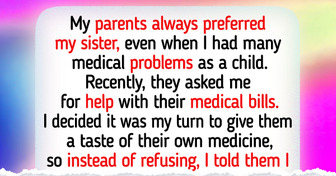I think you did the right thing in this case. Why couldn't he include his son in the trip? Sounds more like he's trying to erase his own son from his life to get a "fresh start" with another family.
Keep an eye on your grandson very carefully so he doesn't get pushed aside by his father, because I think that will happen. He will prioritize his new family with his stepdaughter and your grandson will end up in the shadows.
You might end up having to take over custody of your grandson if his father treats him differently, i.e. worse than his stepdaughter, since you don't know how the new wife will treat him unfortunately.
If it happens that your grandson ends up back with you, I think you should get legal help so that he doesn't stop paying child support.
because if your son has a child with the new wife, he will whine about needing the money for the new child.
My Son Wanted Me to Raise His Kid Alone—So I Let Reality Hit Him Hard
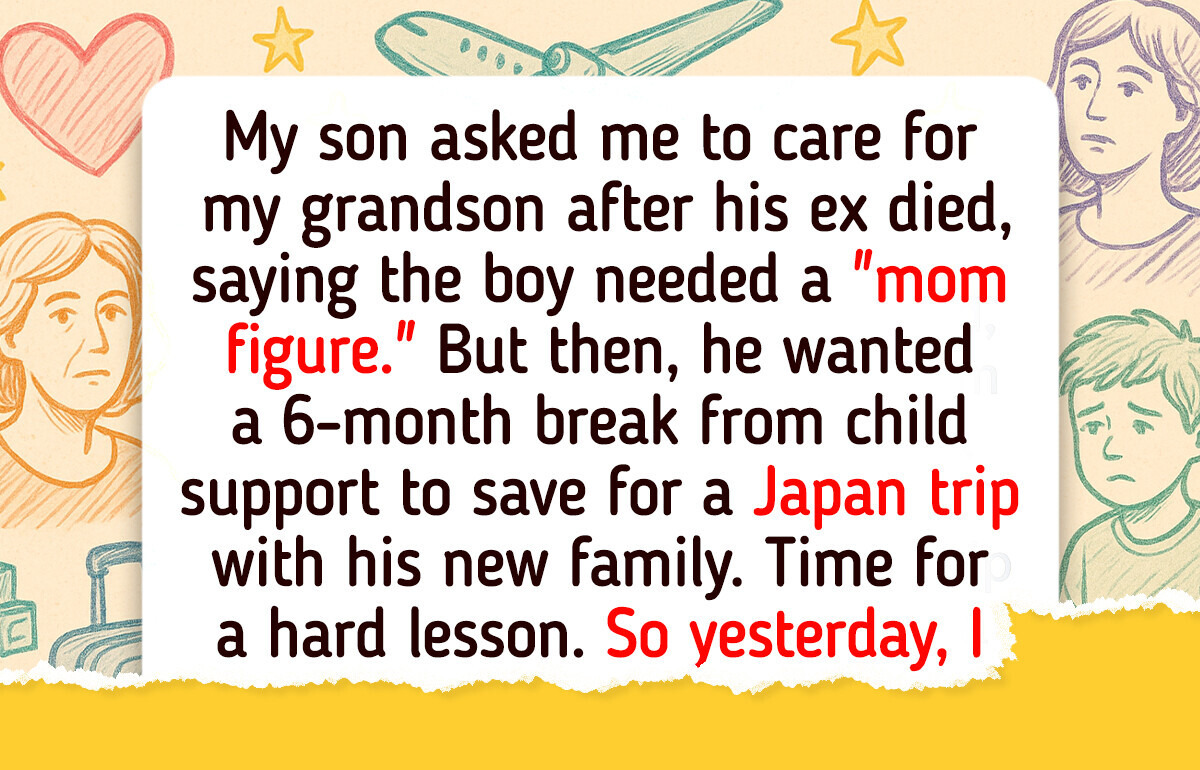
Life has a way of handing us second-round challenges just when we think we’ve earned a breather. For many grandparents, stepping back into a full-time caregiver role can feel both loving and overwhelming, especially when an adult child starts treating parenting like a task that can be outsourced. One of our readers, Linda, recently wrote in after her son asked her to raise his grieving little boy, then tried to pause child-support payments to fund a family vacation. Linda’s story raises tough questions about boundaries, parental responsibility, and how far a grandparent’s love should stretch when your own son tries to escape duties.
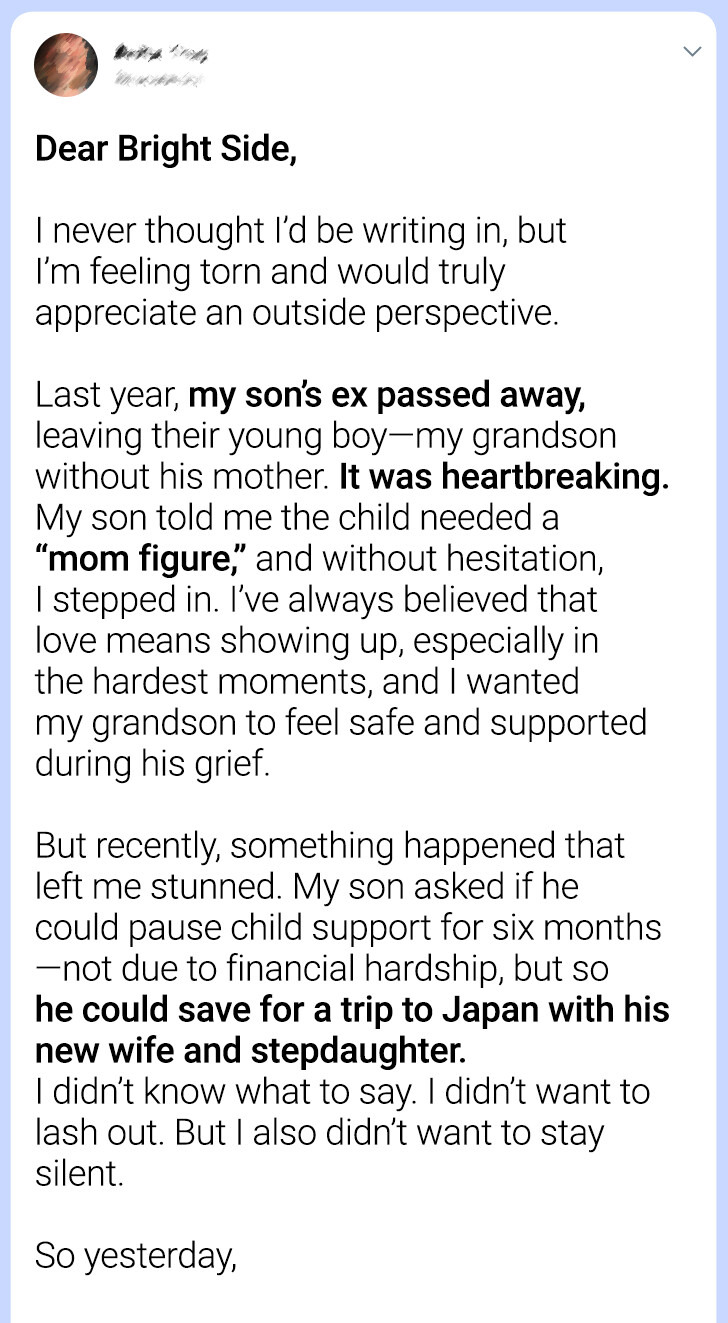
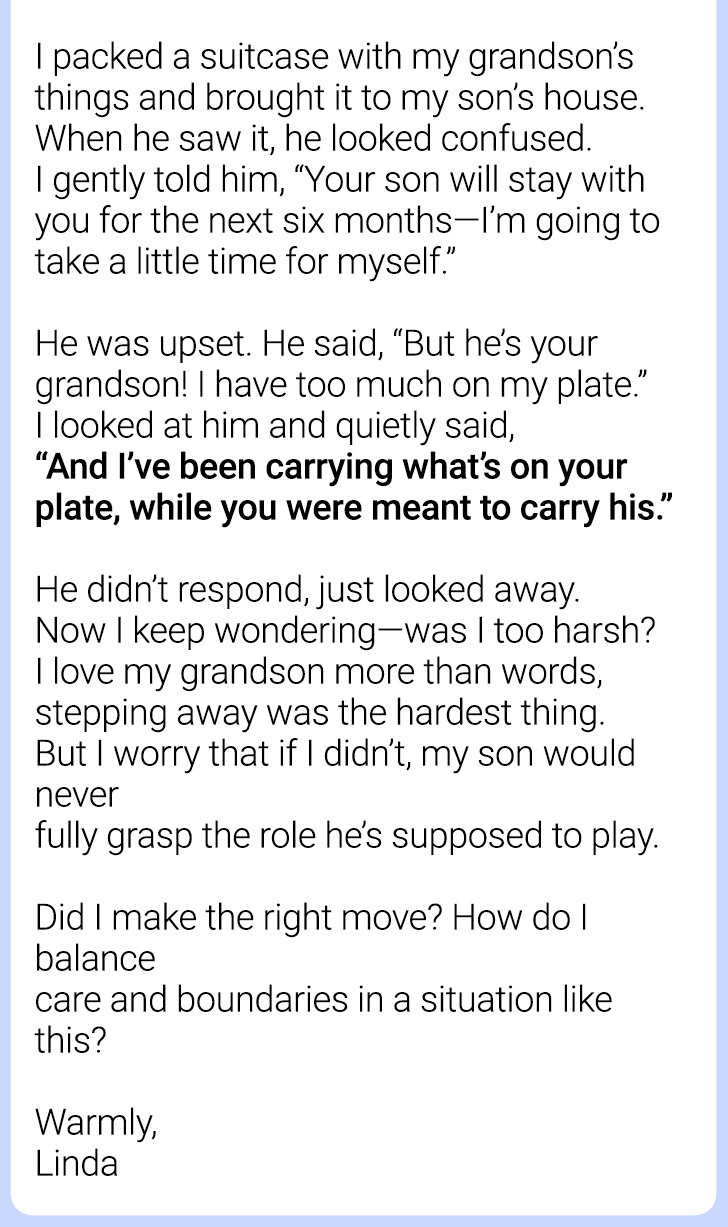
Thank you, Linda, for opening your heart and trusting us with your story. Your strength and honesty are truly appreciated. We’ve put together four thoughtful pieces of advice to help you navigate this difficult situation with clarity, compassion, and confidence—while also addressing the delicate balance of parental responsibility you’ve taken on.
Put Your Grandson’s Emotional Needs First
While setting boundaries with your son is important, it’s crucial to ensure your grandson doesn’t feel caught in the middle. After losing his mother, he’s already endured a significant emotional loss, and sudden changes in his care can add confusion or insecurity.
When discussing these changes with him, keep the conversation gentle and reassuring. Let him know he’s loved and that the adults in his life are working together to support him. Avoid framing the situation as a punishment or conflict between adults. Maintaining stability and open communication can help him feel secure during this transition.
Establish Clear Boundaries — and Know Your Rights
Linda, if your son believes he can temporarily opt out of supporting his own child, it may be time to stop relying on informal promises. Verbal agreements often fall apart when priorities shift—and his decision to save for a vacation while leaving you with the full parental responsibility is a clear red flag.
To avoid future uncertainty, you might consider speaking with a family law professional about formalizing child support through legal means. This could include court-enforced payments or wage deductions. Taking this step isn’t about creating conflict—it’s about ensuring your grandson’s needs are met and protecting your own stability as well.
Focus on a Long-Term Parenting Plan — Not Payback
It’s understandable to feel hurt and even betrayed by your son’s actions—but try not to let frustration drive your decisions. While your response may have highlighted the imbalance in responsibility, true change often comes from consistency, not confrontation.
Think about what will serve your grandson best in the long run. A sustainable plan—one that sets clear expectations and boundaries for your son while keeping your grandson’s needs front and center—will be far more effective than a one-time lesson. Choose actions that promote responsibility, not resentment. Studies from the Child Mind Institute indicate that children experience emotional and academic benefits when both parents remain actively involved in their lives—even after a separation or divorce.
Take Care of Yourself, Too
Linda, while you’re doing everything you can to support your grandson, don’t forget that caring for yourself is just as important as managing parental responsibilities. Taking on full-time caregiving during retirement—especially without consistent support—can lead to burnout, frustration, and emotional fatigue.
It’s essential to create space for rest, set boundaries that protect your energy, and reach out for help when needed—whether from friends, support networks, or a counselor. Fulfilling parental responsibilities doesn’t mean neglecting your own needs. In fact, your ability to offer a stable, nurturing environment depends on your well-being. Taking care of yourself ensures you can keep showing up for him with strength and love.
A woman bravely reveals the painful reason her brother refuses to let his fiancée invite her family to their wedding. Follow their emotional and complicated story at the link.
Comments
Related Reads
My Future MIL Publicly Shamed Me — I Made Her Regret It
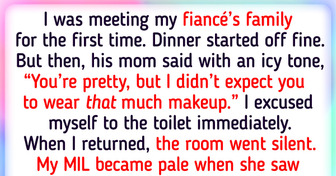
I Refused to Take My Pregnant Stepmother to the Hospital

My Son Brought His Fiancée Home — What I Discovered Made Me Call the Police
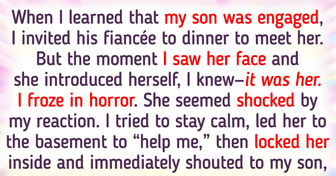
I Stumbled Upon a Secret Letter Revealing Alarming Details About My Boyfriend

13 Real Stories That Could Be Turned Into Award-Winning Dramas
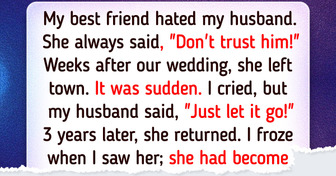
“She Will Need to Change Her Passport,” A Woman, 58, Reveals Facelift Surgery Results Leaving Everyone Speechless

My Toxic Colleague Insulted Me Because of My Drastic Weight Loss, My Petty Revenge Was Epic

15 Success Moments From Strangers That Deserve All the Golden Buzzers in the World
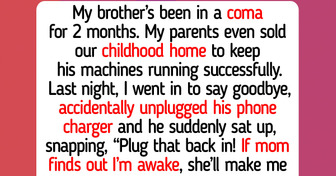
15 Moments That Show Kindness Is Quiet but Changes Everything

12 Life Moments Where Quiet Kindness Played the Main Role

I Refuse to Be My Brother’s ATM Anymore—The Revenge He Planned Was Sick
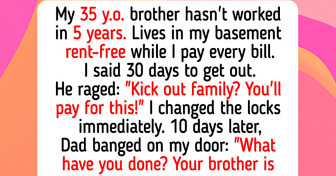
My Family Always Prioritized My Sister—Then Expected Me to Help Them With Medical Bills
